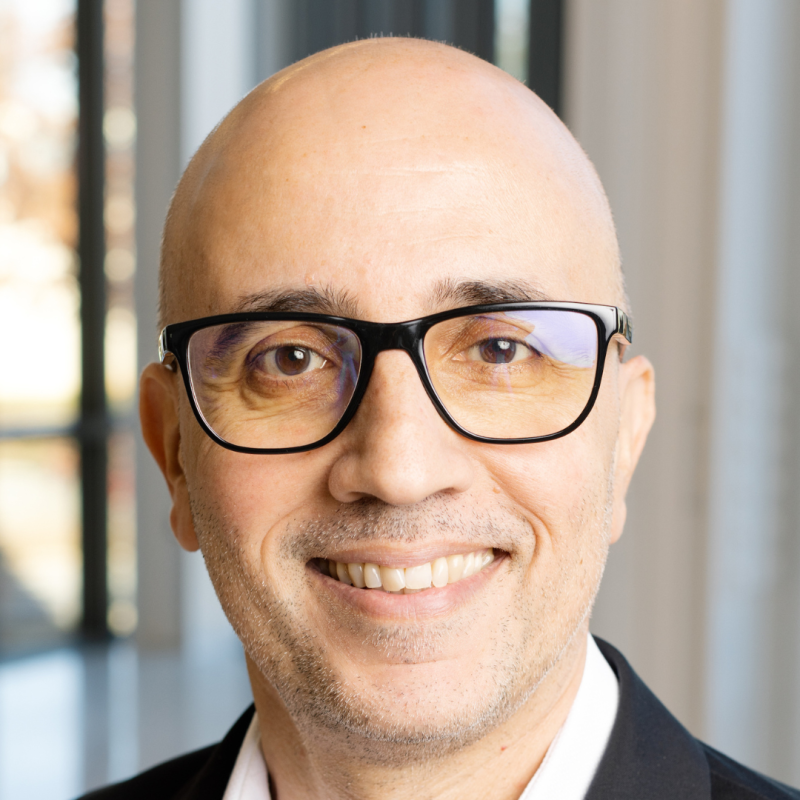Studying Science Scientifically Speaker Series: Santo Fortunato

Santo Fortunato, a professor at the Luddy School of Informatics, Computing, and Engineering at Indiana University, will present "Navigating the new science of science: impact, collaboration, excellence."
Please note this event has been moved to online-only. Click the Participate Online button above to join us in Zoom.
Santo Fortunato is a professor at the Luddy School of Informatics, Computing, and Engineering at Indiana University. Previously, he was a professor of complex systems at the Department of Computer Science of Aalto University, Finland. Prof. Fortunato got his PhD in Theoretical Particle Physics at the University of Bielefeld In Germany. His focus areas are network science, especially community detection in graphs, computational social science and science of science. His research has been published in leading journals, including Nature, Science, Nature Physics, PNAS, Physical Review Letters, Physical Review X, Reviews of Modern Physics, Physics Reports and has collected over 47,000 citations (Google Scholar). His single-author article Community detection in graphs (Physics Reports 486, 75-174, 2010) is one of the best known and most cited papers in network science. Fortunato received the Young Scientist Award for Socio- and Econophysics 2011, a prize given by the German Physical Society, for his outstanding contributions to the physics of social systems. He is Fellow of the Network Science Society (2022) and of the American Physical Society (2022). He is the Founding Chair of the International Conference of Computational Social Science (IC2S2), which he first organized in Helsinki in June 2015. He was Chair of Networks 2021, the largest ever event on network science, a historical merger of the NetSci and Sunbelt conferences. He is author of the book A First Course in Network Science, by Cambridge University Press (2020), the most accessible textbook on the new science of networks.
Abstract:
Science of science is the investigation of science as a system, via analysis and modeling of data on scientists and their interactions. I will present results from our group on three key pillars of the discipline: impact, collaboration, and excellence. On impact, I we found that the distributions of citations of papers published in the same discipline and year rescale to a universal curve, by properly normalizing the raw number of cites. I will show that active authors in a certain field may induce their collaborators to work in that field, especially if they are highly productive and cited. Also, I will discuss the impact of the COVID-19 pandemic on scientific collaboration. Finally, I will show that the lag between the year of the Nobel discovery and the year of the award has been growing exponentially over the years. What does this mean for science? No Nobels = No progress?
About the speaker series:
The CIRSS Friday Speaker Series continues in Fall with a new theme of "Studying Science Scientifically: State of the Art and Prospects for the Science of Science.” With increasingly rich data sources, exciting new technologies for understanding natural language, and modeling methodologies adapted from diverse domains of scholarship, the opportunities to observe, measure, and model the structure and dynamics of the scientific enterprise abound as never before. We are inviting some of the leading thinkers and most innovative researchers to present at this talk series to illustrate the breadth of advances that have been made, and the many more yet to be made.
We meet most Fridays, 11am-noon Central time, on Zoom. Everyone is welcome to attend. More information, including upcoming speaker schedule and links to recordings, is available on the series website. For weekly updates on upcoming talks, subscribe to our CIRSS Seminars mailing list. Our Fall series is led by Timothy McPhillips and Yuanxi Fu, and supported by the Center for Informatics Research in Science and Scholarship (CIRSS) and the School of Information Sciences at the University of Illinois at Urbana-Champaign.
This event is sponsored by Center for Informatics Research in Science and Scholarship